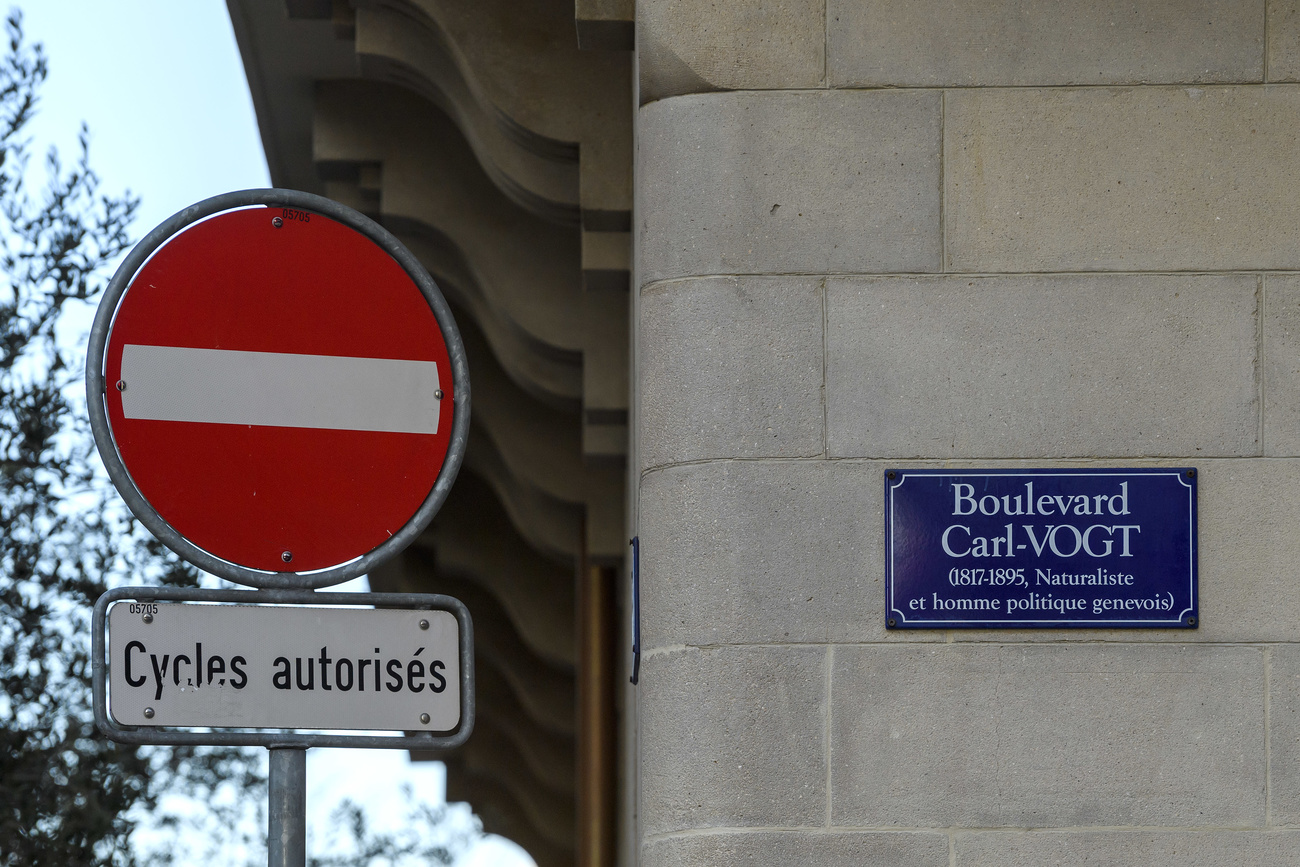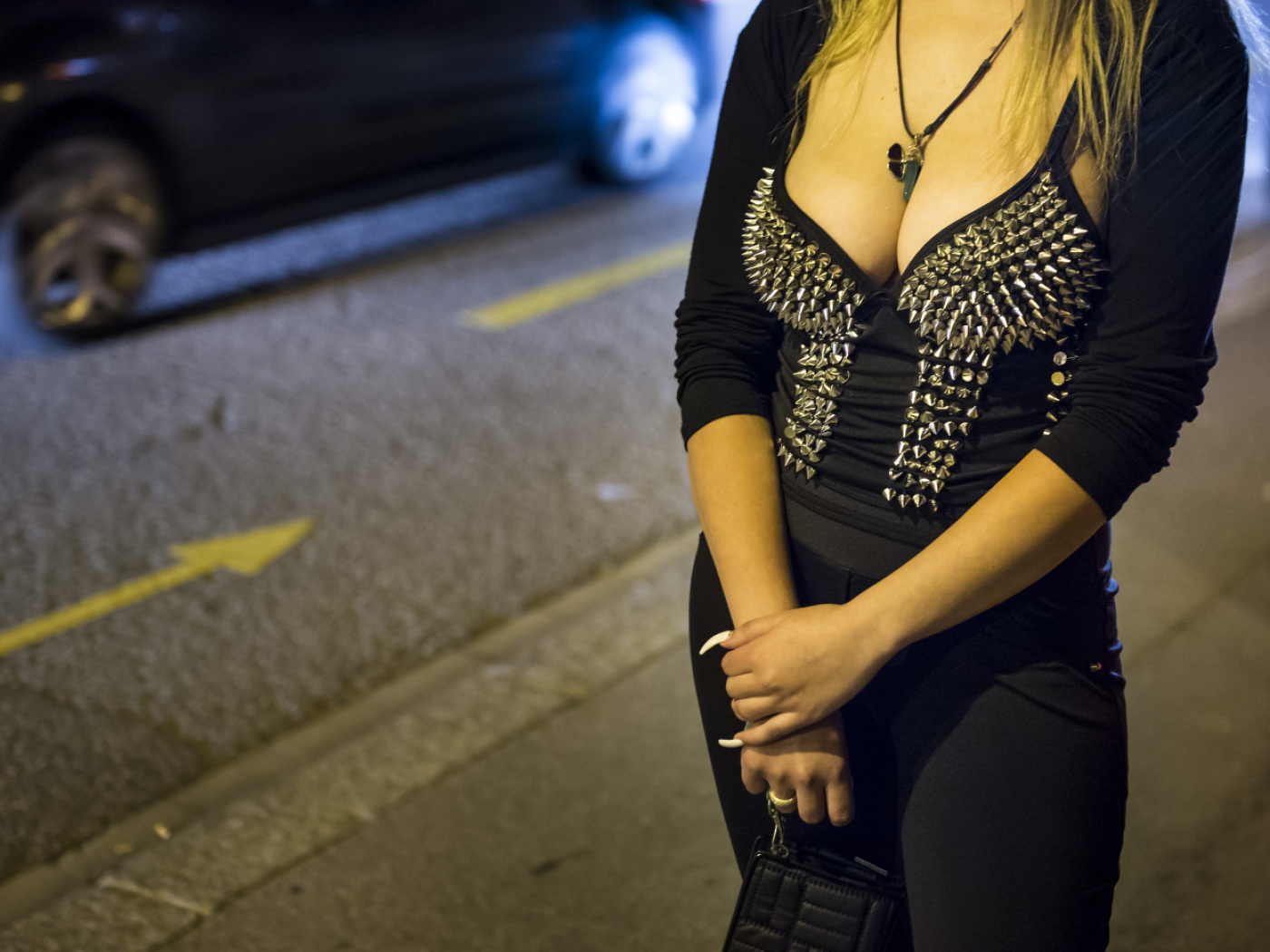Geneva decides not to remove controversial memorials

The city of Geneva has presented an action plan regarding a series of controversial local statues and monuments of historical figures linked to racism, colonialism or slavery. Priority will be given to providing more information and context, rather than taking them down.
“No statues or monuments will be removed, and no controversial sites will be renamed,” declared Geneva’s mayor, Alfonso Gomez, on Monday.
The municipality has decided to give priority to more dialogue and information at the place where the memorial is located, he said. “We must recognise this multifaceted heritage,” added Gomez.
The action plan follows a process that began in 2020 following global protests to denounce racism following the death of George Floyd, a Black American man who was killed by a US police officer.
+Switzerland and its colonistsExternal link
A study commissioned by Geneva on racism in public spaces identified 33 controversial sites. A working group involving related associations concerned by this issue then prioritised actions to be taken by the authorities.
Carl Vogt
The first step involves giving context to five major historical figures. One of these is Carl Vogt, a scientist and politician who has a boulevard named after him in Geneva and a statue. The 19th-century naturalist has been accused of holding racist and sexist views. His bust, currently stored out of sight due to renovation work on the University of Geneva’s Bastions building, may be moved.
+ University of Geneva removes controversial building name
But this decision will be taken in consultation with the University of Geneva. A new location has not yet been identified. An explanatory plaque may be added, but this may also be linked to a related conference or round table, said Gomez.
Gustave Moynier, who has a bust, street and park named after him, also features in the action plan. He is celebrated as a founding member of the Geneva-based International Committee of the Red Cross (ICRC), but he was also honorary consul-general in the Congo and supported Belgian King Leopold II’s colonial rule of the African state that led to the deaths of millions of people.
+ Swiss cities dust off their colonial past
Geneva is also planning to erect a memorial to slavery. There are also plans to create a permanent exhibition on the subject. The Musée d’ethnographie de Genève (MEG) is currently showing an exhibition entitled “Memories. Geneva in the colonial world”.
Elsewhere in Switzerland, Neuchâtel has developed a number of projects to shed light on its colonial past, notably around the figure of David de Pury, a local merchant who made his fortune partly through slavery. His statue, which was smeared with red paint in 2020, now stands next to a work of art designed to question De Pury’s past and an explanatory plaque.
Adapted from French by DeepL/sb
This news story has been written and carefully fact-checked by an external editorial team. At SWI swissinfo.ch we select the most relevant news for an international audience and use automatic translation tools such as DeepL to translate it into English. Providing you with automatically translated news gives us the time to write more in-depth articles.
If you want to know more about how we work, have a look here, and if you have feedback on this news story please write to english@swissinfo.ch.

In compliance with the JTI standards
More: SWI swissinfo.ch certified by the Journalism Trust Initiative


















You can find an overview of ongoing debates with our journalists here . Please join us!
If you want to start a conversation about a topic raised in this article or want to report factual errors, email us at english@swissinfo.ch.